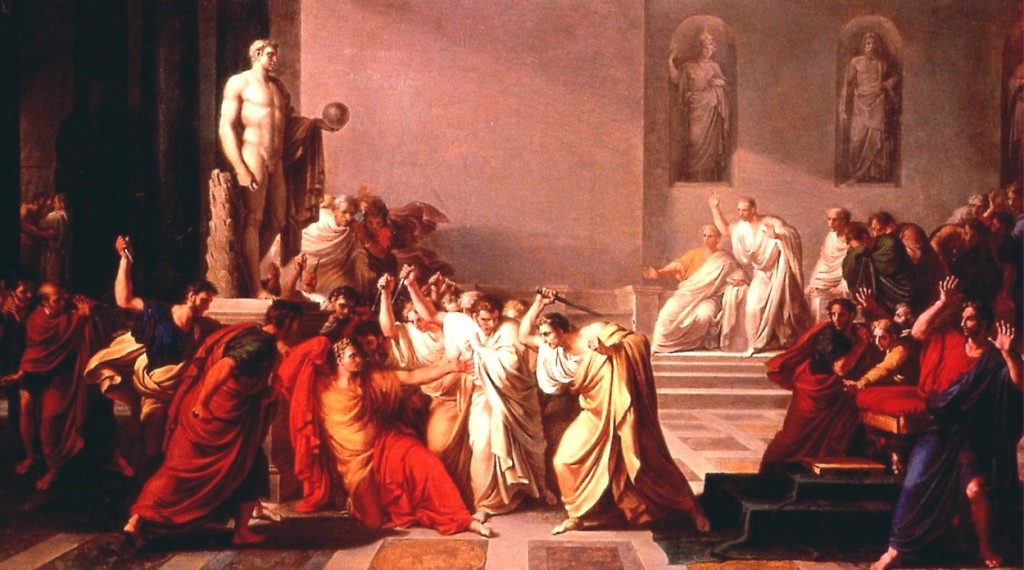What exactly are the Ides of March??
March 16, 2014/in Blog/by admin
The Ides of March, 44 BC, was not a good day for Julius Caesar...
What are the Ides of March? The Romans did not number days of the month but counted back from three fixed points: the Nones (5th or 7th, depending on the length of the month), the Ides (13th or 15th), and the Kalends (1st) of the following month. The Ides were dedicated to the god Jupiter, the supreme deity of the Romans, and a sheep was sacrificed in his honor. The Ides of March in particular was a feast day celebrating the goddess Anna Perenna, and was a day for drinking and revelry.
----------------------------------------------------------
What does the term Caesar mean? The Julii Caesares were a specific branch of the Julia clan, so the name Gaius Julius Caesar basically serves to identify his bloodline. After Caesar’s death, the term was used by future rulers as a title, basically equivalent to emperor. The term “Caesar” continued into the Byzantine Empire, the Holy Roman Empire, the Hapsburg Empire, and morphed into the terms Kaiser and Czar.
-------------------------------------------------------------
The Murder: By 44 BC, Julius Caesar was advancing ever closer to dictatorship, threatening almost 500 years of republican government. The Romans had driven out their last king in 509 BC and were fiercely proud of their independence. Caesar had enraged noble Patricians with his relationship with Cleopatra and was considering divorcing his wife to marry her. He had recently been named “dictator in perpetuity” and was preparing an attack on the Far East, where no one but Alexander the Great had gone before. If he came back victorious no one would be able to stand against him. The 60 plotters (who called themselves “the liberators”) had to act quickly, so decided to murder him in the Senate. As the session opened, one of the conspirators brought him a petition, then the others came over and grabbed Caesar’s robes and arms, and eventually brought out their daggers. Caesar struggled at first as the group of men set upon him, but the blood loss was too great and he fell dead at the foot of the statue of Pompey.
Caesar was murdered inside the Theater of Pompey
You can still visit the ruins of the theater in the heart of Rome
The Aftermath: The ironic result of the attack was that it precipitated the end of the Republic it aimed to preserve. The Roman lower classes (who liked Caesar), became enraged that a small group of aristocrats had taken such violent action. Marc Antony, who had been drifting apart from Caesar, was intent on taking control of Rome himself, but soon learned that Caesar had named his grandnephew Gaius Octavian his sole heir, bequeathing him the powerful Caesar name as well as making him one of the wealthiest citizens in the Republic. Octavian, aged only 18 at the time of Caesar's death, proved to have considerable political skills and defeated Marc Antony (who had married Cleopatra to bolster his position), and became the first ruler of the new Roman Empire, even acquiring divine status with the title Casear Augustus. It was under his reign that many of the great Roman monuments and cities were built.
Out with one dictator, in with 500 years of Empire! So much for the Republic...












